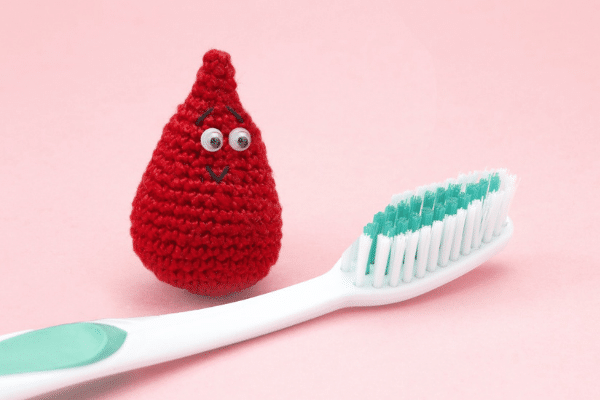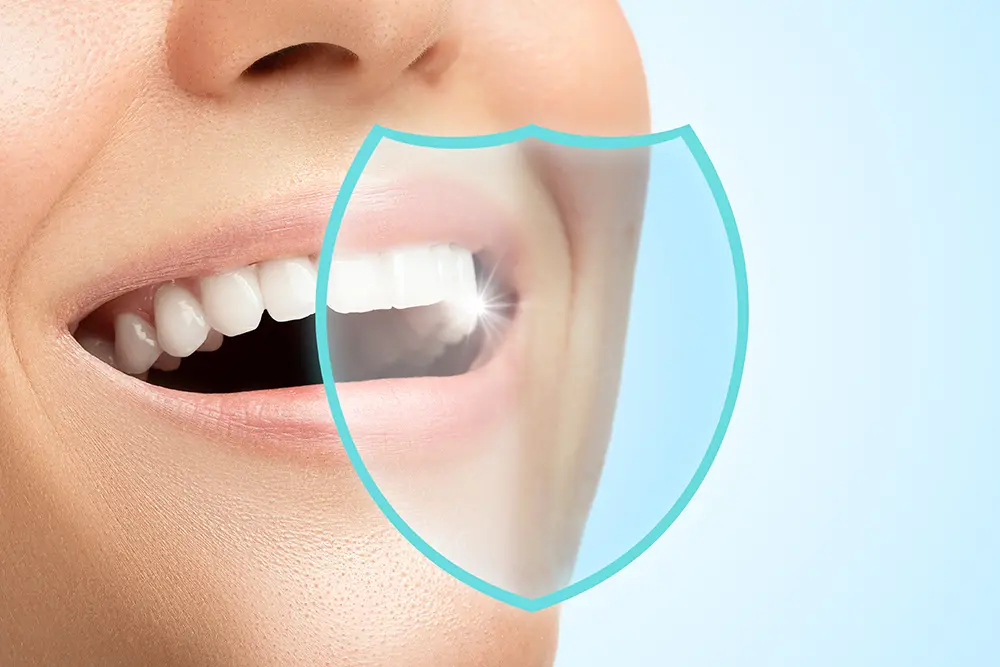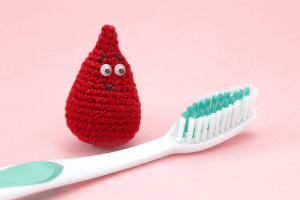Yes, you should! Bleeding gums must not be neglected as it is one of the early signs of gum disease. In severe gum disease, teeth may be lost prematurely. Early detection means timely treatment to maintain the natural teeth when it is still not too late.
Gum disease is a disease that is present in the gums. However, the real problem lies in losing the structures supporting the teeth (e.g. bone). Gum disease can present in mild forms, from bleeding gums (gingivitis) to severe ones such as periodontitis, resulting in eventual tooth loss.
What causes gums to bleed?
Gum bleeding results from a prolonged accumulation of dental plaque and tartar, leading to a local inflammatory response. Bleeding may occur spontaneously or during toothbrushing and interdental cleaning. Sometimes the gums may also bleed from traumatic brushing. However, in most cases, the cause of bleeding gums is the presence of gum disease. The best way to find out would be to visit a dentist for an assessment.
How is gum disease treated?
Depending on the severity of the gum disease, the treatment required will be different. In mild cases where there is no loss to tooth support, regular professional scaling and polishing, together with good home oral hygiene, will be sufficient. Deep cleaning under the gums will be needed when the disease involves the loss of the tooth-supporting structures. In some instances, gum surgery may be required. The long term success of gum treatment requires the partnership of the patient in performing good personal oral hygiene and in compliance with regular dental reviews as prescribed by the dentist.
What should I do if I have bleeding gums?
You can start by practising the correct tooth brushing technique with a soft brush. This will efficiently brush away the dental plaque that causes gum bleeding and prevent traumatic injuries to the gums. Interdental cleaning with floss or interdental brushes should also be instituted. A visit to the dentist should be scheduled to assess the gum condition to allow for early identification and intervention where necessary.
FAQs
It can be a sign of undiagnosed gum disease.
Yes, in cases of severe gum disease or patients with extreme Vitamin C deficiency.
Mouthrinses with Chlorhexidine as an active ingredient can help reduce bleeding from the gums, but if the causative factor (dental plaque) is not mechanically removed regularly, this will just be a stop-gap measure, as the root cause has not been addressed.
In a healthy individual, if there is some bleeding from the gums after an extraction, apply pressure with sterile gauze over the bleeding site for 20 to 30 minutes. This will allow the formation of a blood clot that will stop active bleeding.
Maintaining a high standard of oral hygiene throughout the pregnancy certainly helps. It is also important to have good dental and gum health prior to your pregnancy to minimize complications during the pregnancy.





